Adoptees Advocate For Rights Across Michigan
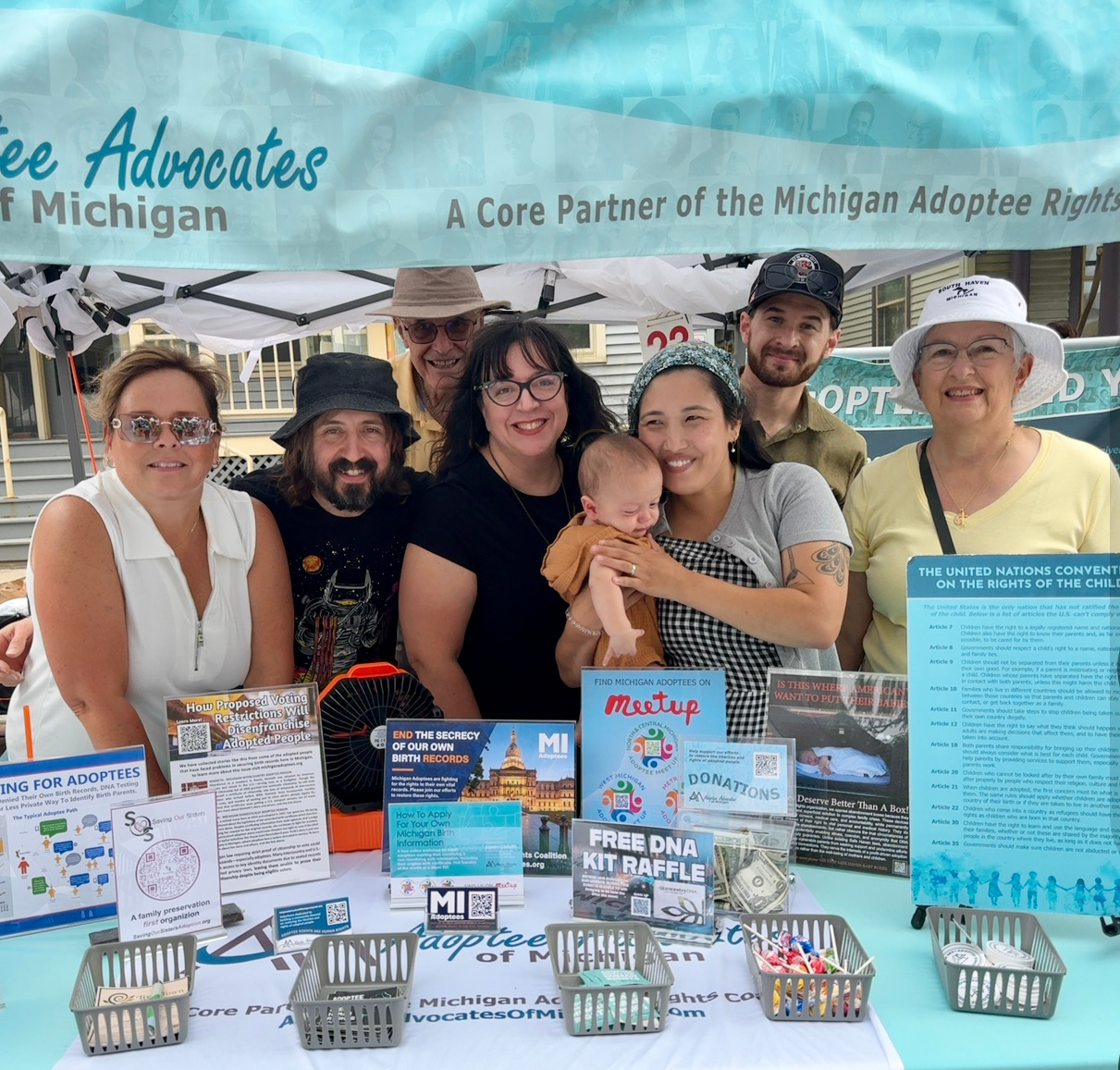
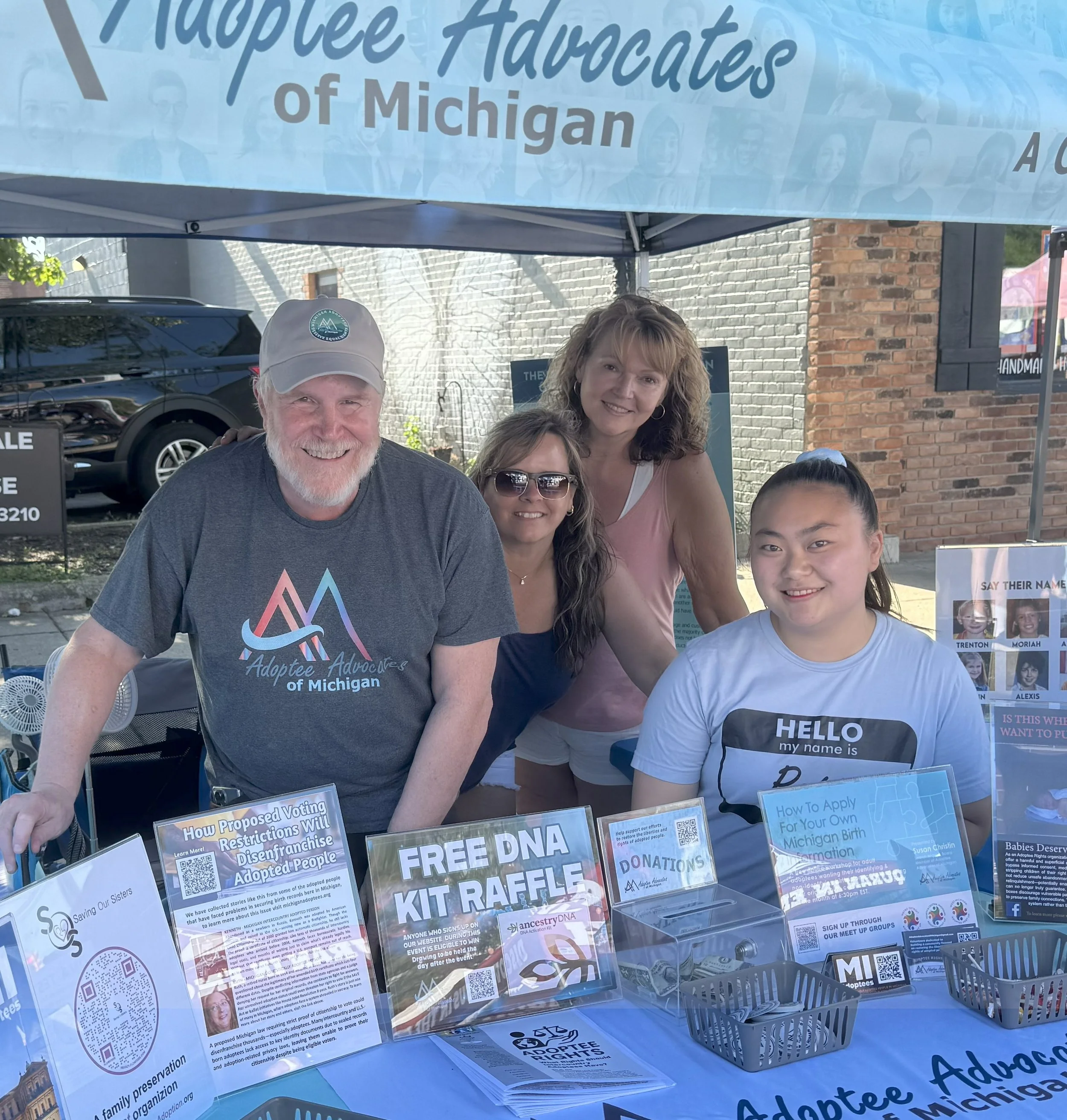

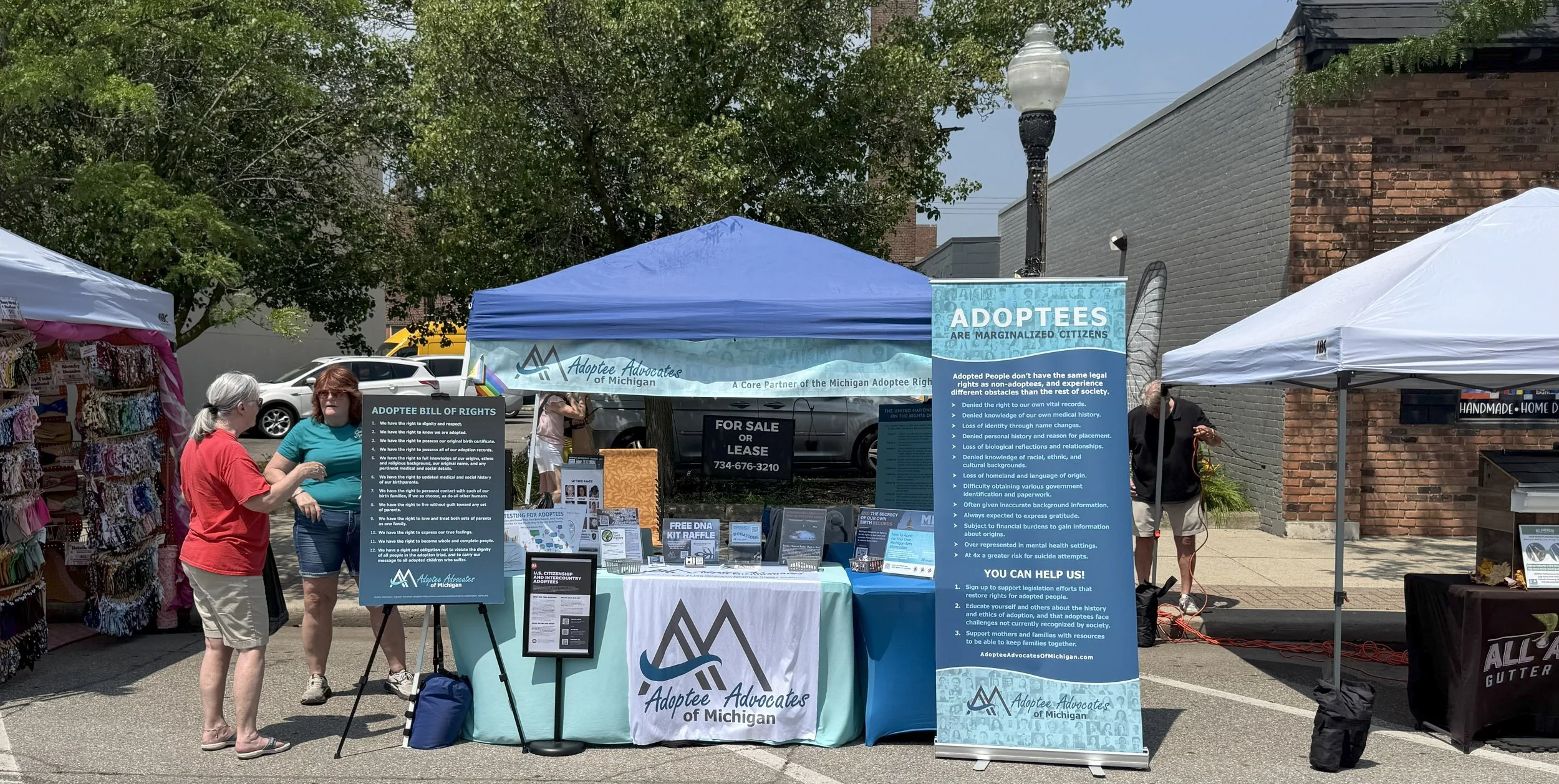
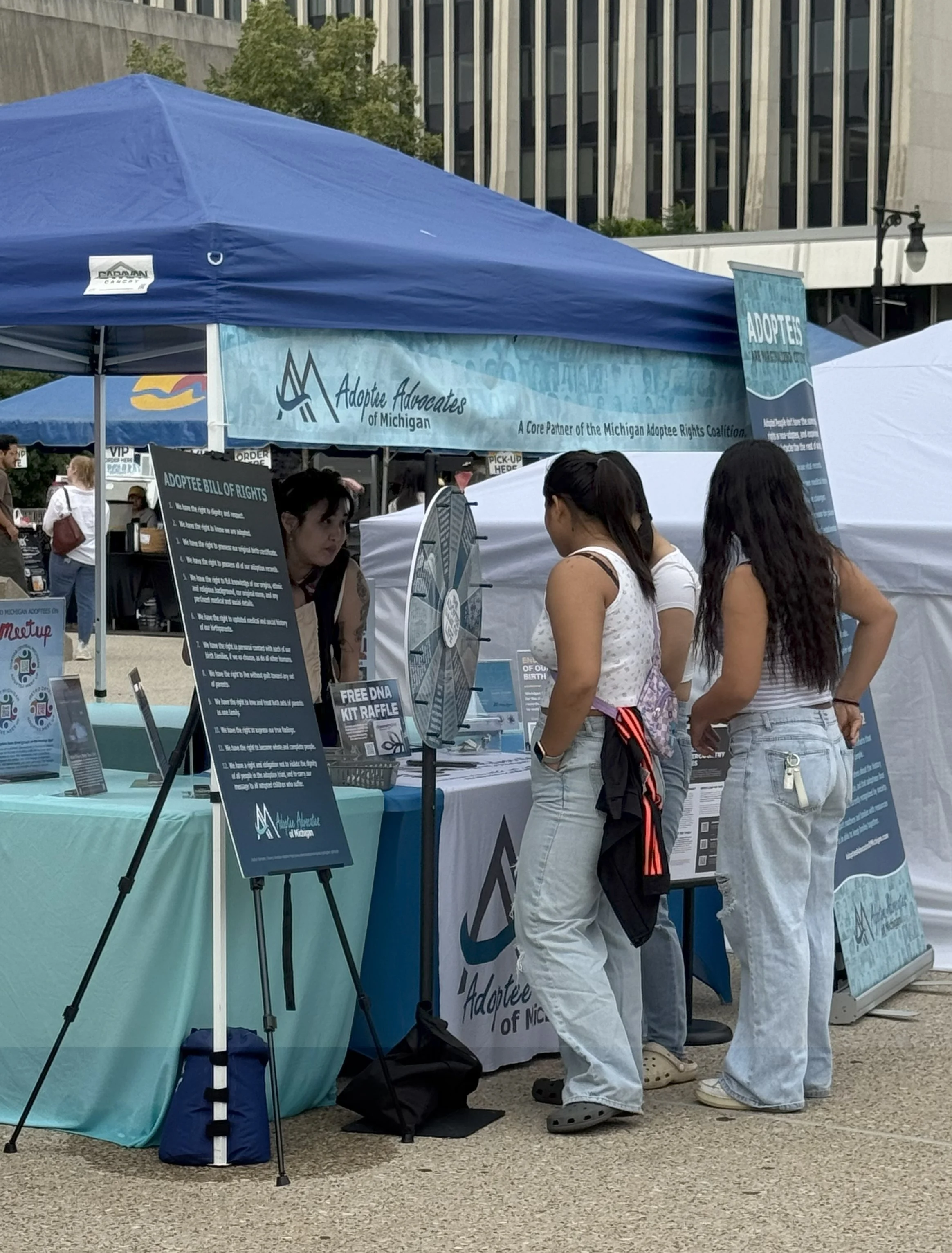
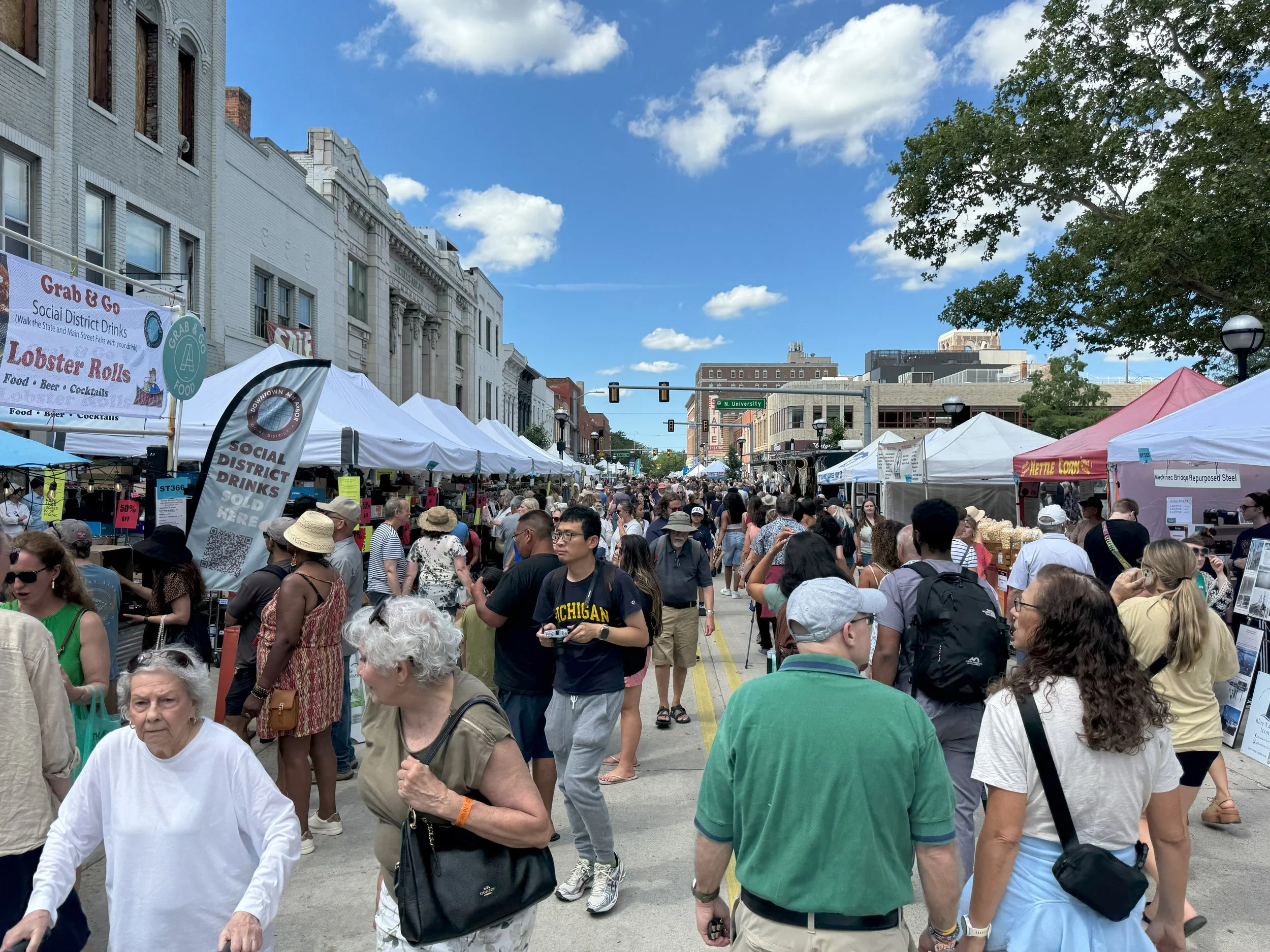
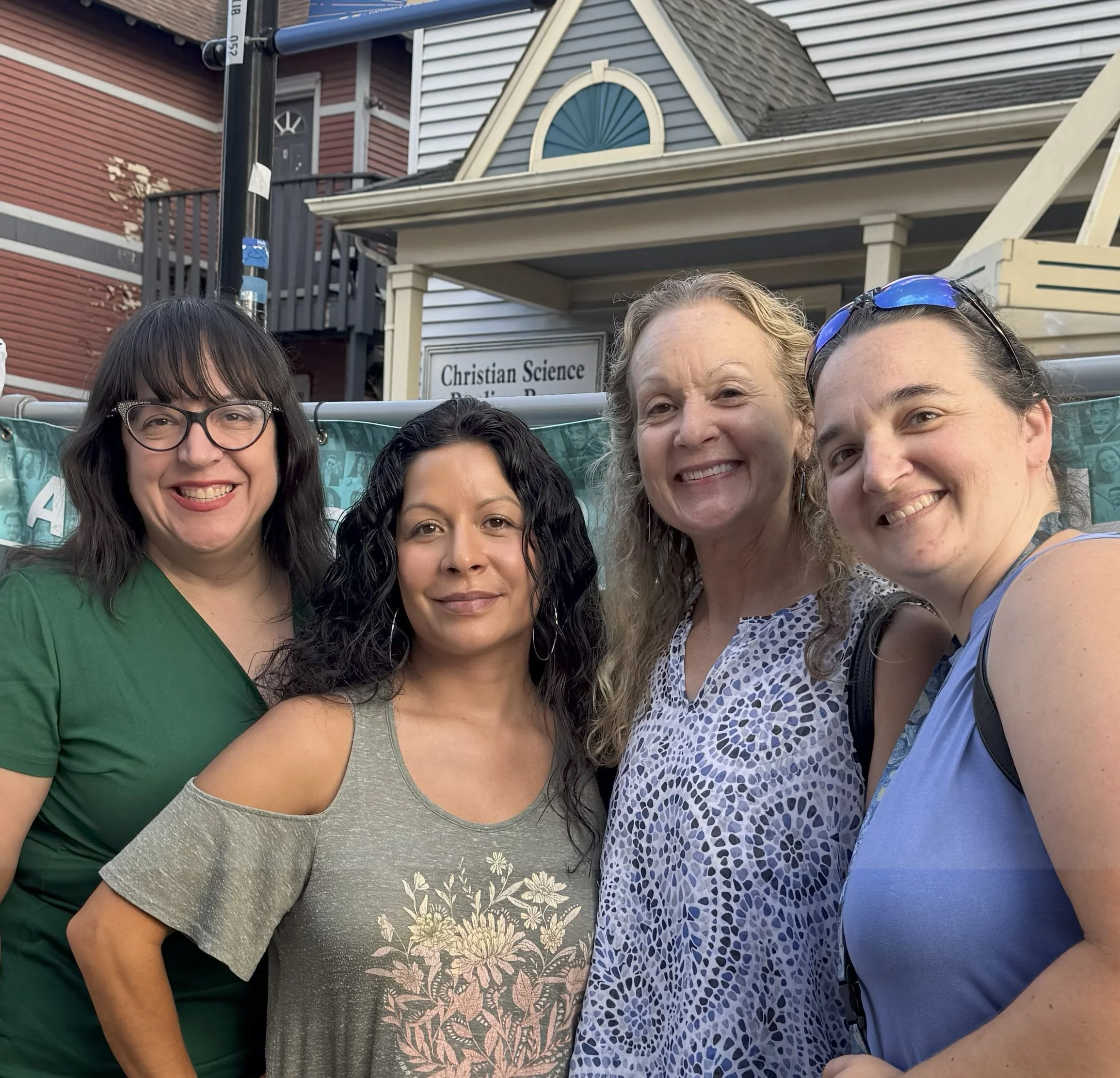
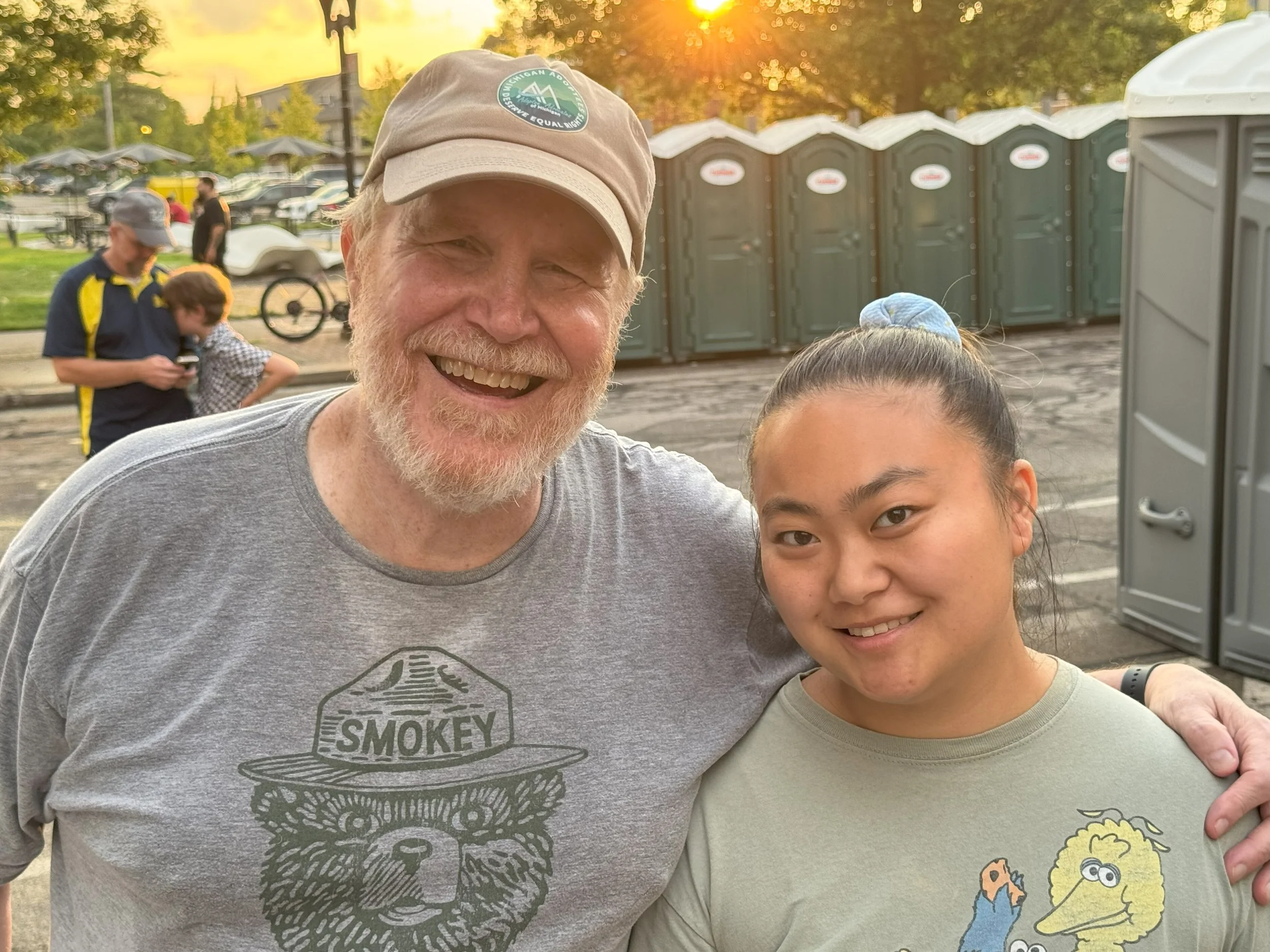
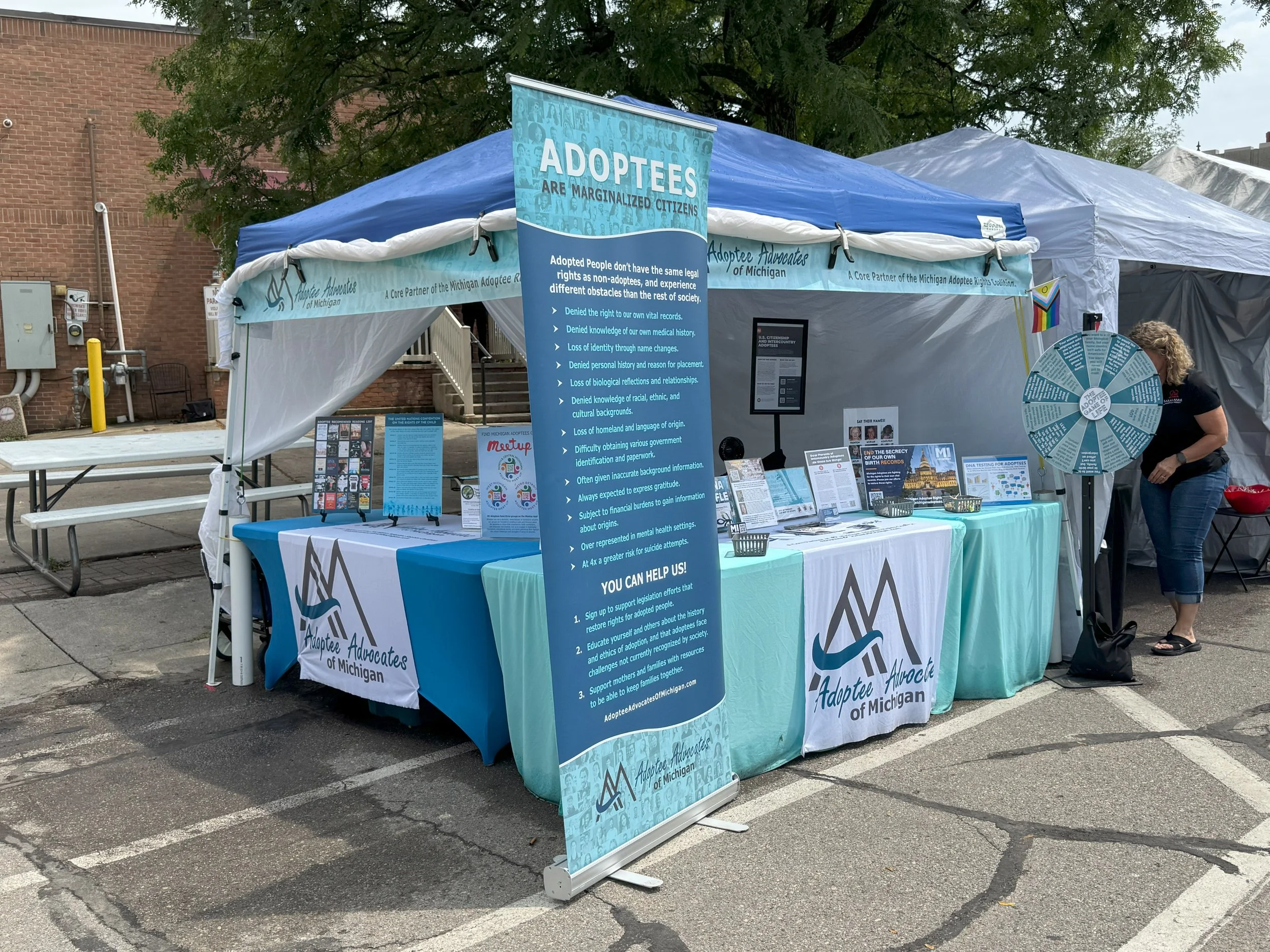
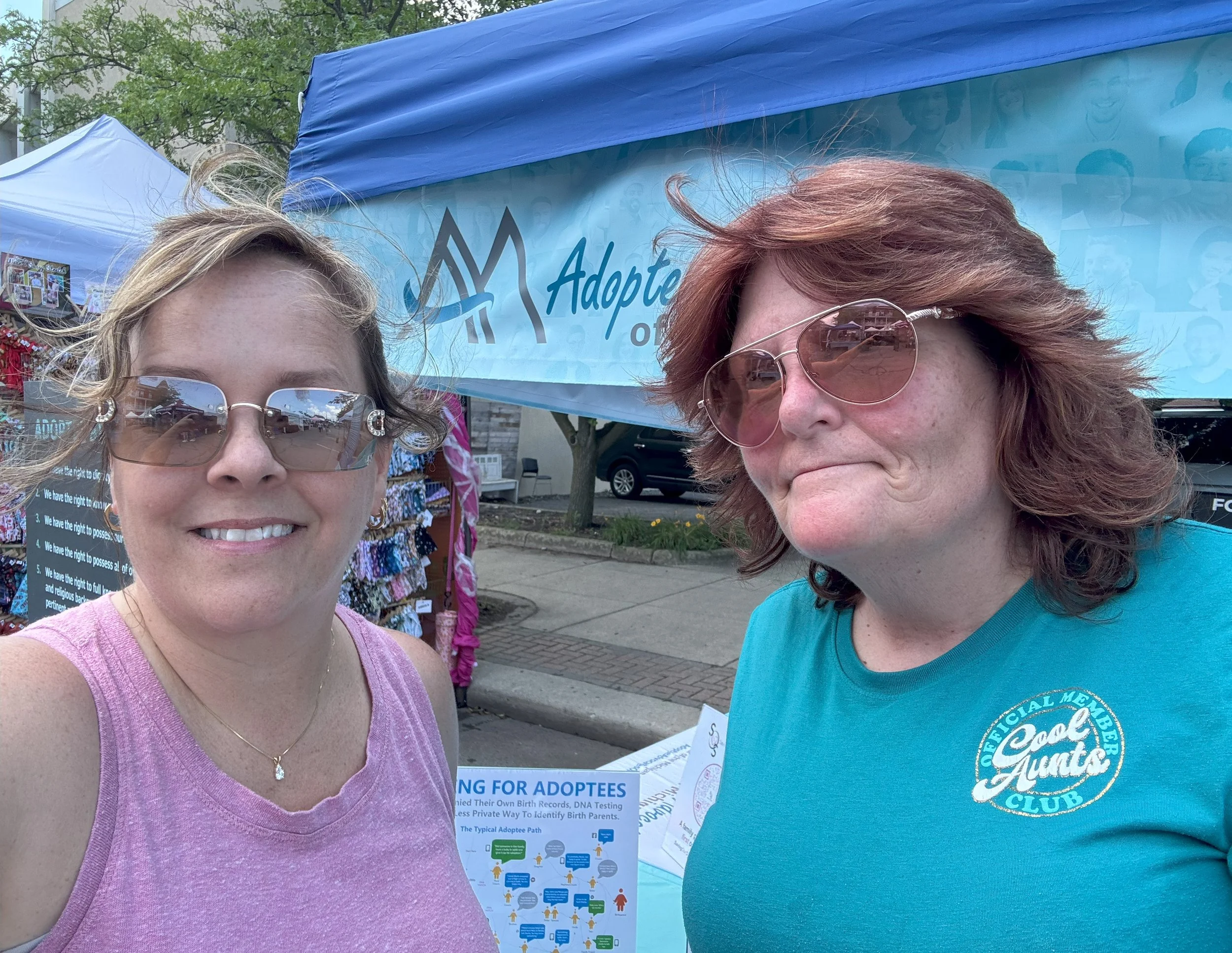
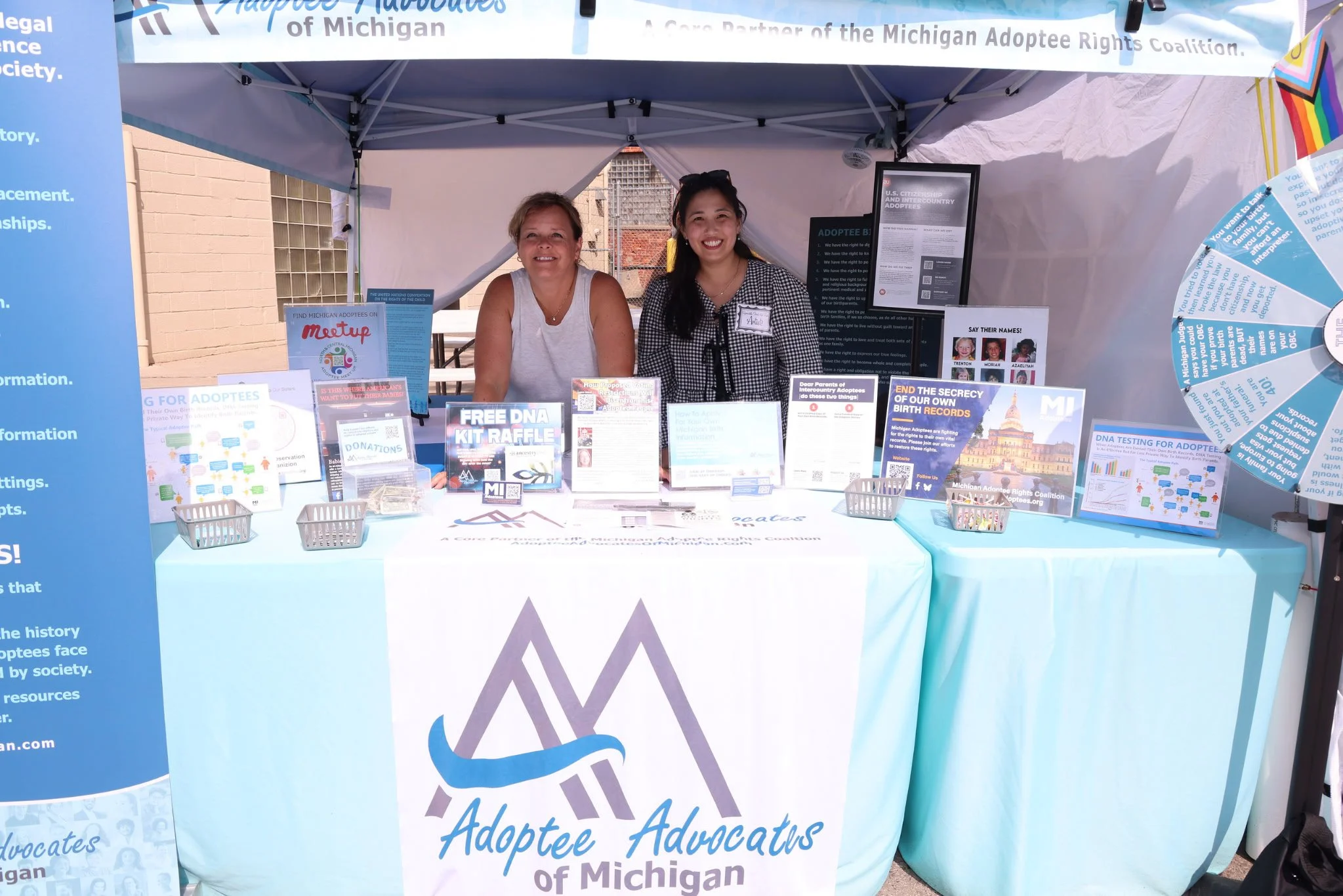
Standing Up for Adoptee Rights: Summer 2025 Highlights
This summer, Adoptee Advocates of Michigan showed up across the state again with one goal: to bring adoptee-centered advocacy directly to the public. From Grand Rapids to Metro Detroit, we spoke out about the legal, emotional, and social injustices adoptees face. Through every conversation, booth, and shared story, we made it clear: adoptees deserve equal rights, visibility, and justice.
Where We Were This Summer
Grand Rapids Asian-Pacific Festival (GRAPF), June 13–15
With thousands of attendees each year, GRAPF celebrates culture, identity, and belonging, making it a natural fit for adoptee advocacy. It offered an opportunity to engage in conversations about legal marginalization, cultural erasure, and the complexities of identity, particularly with AAPI international and transracial adoptees. These topics resonate deeply in spaces where cultural identity is honored and explored.
Trenton Summer Festival, June 27–29
Trenton’s welcoming atmosphere has made this a favorite stop for us two years running. With nearly 100,000 attendees, this tight-knit community consistently creates space for meaningful, empathetic conversations. Many visitors came ready to listen, share their personal connections to adoption, or learn more about the realities adoptees face under current law. We were able to sponsor this year’s Music Bingo with a basket that included a DNA test and an explanation that this is how many of us are forced to find our roots due to state secrecy laws in Michigan.
Wyandotte Street Art Fair, July 9–12
Drawing over 200,000 people annually, the Wyandotte Art Fair gave us a powerful new platform. This year we found ourselves next to an unlicensed adoption agency, offering a stark contrast to our message that children should not be commodified to receive care. Many visitors stood firmly with us, voicing concern over the $25 million adoption industry’s influence on public policy and perception. Wyandotte's deep sense of community created an ideal environment for honest conversations about identity, loss, and rights.
Ann Arbor Art Fair, July 17–19
As the largest juried art fair in the country, the Ann Arbor Art Fair attracts nearly half a million people. Being located in the nonprofit section placed us among a range of advocacy and justice-based organizations, where attendees came ready to engage. This space gave us a high-visibility platform for public education and outreach. One visitor created a viral video about our work that reached well over 200,000 views, highlighting what she called “The Ann Arbor Effect,” a term she used to describe the transformative learning that happened at our booth.
Why We Show Up
At every booth, we spoke with hundreds of people—some adopted, some connected to adoption, and many of whom had never heard adoptee experiences directly from adoptees themselves.
Most people don’t know that:
5 to 7 million people in the United States have been adopted, yet many of us are denied access to our own birth records, ancestry, and medical histories. While 16 states have opened access to original birth certificates, Michigan is not one of them.
International adoptees face even more severe challenges. As many as 30 to 70 thousand adoptees in the U.S. may lack citizenship because their adoptive parents failed to finalize their naturalization. Many are unaware they could even be at risk of detention or deportation, but a free Adoptee Citizenship Clinic is available to help them figure it out.
In Michigan, proposed voter ID laws requiring birth certificates or passports could disproportionately impact adoptees, many of whom face significant barriers obtaining these documents due to altered or amended birth records that are often flagged by officials, as well as the high costs and long delays involved in accessing proper identification.
Baby Abandonment Boxes, currently under legislative consideration in Michigan, are not a solution. They dehumanize vulnerable mothers and infants, and serve the adoption industry’s demand for newborns without requiring informed consent to all parties. Rather than addressing the real needs of families in crisis, they contribute to abuse and trafficking.
Many children are adopted out of poverty, not neglect or abuse. Family separation in Michigan and beyond is often used as a quick fix for systemic failure, with little support given to families in need before their rights are terminated.
Adoption doesn’t always mean a better home—just a different one. Too often, we see headlines of adopted children harmed or killed. Secrecy laws don’t just protect birth parents, they also shield systems that place children in dangerous situations.
Adoptees are 4x more likely to attempt suicide than non-adoptees and are overrepresented in mental health and correctional systems. These statistics are directly tied to secrecy, identity loss, and societal invalidation.
Despite the weight of these issues, adoptees are still expected to be grateful. We're often told we were "saved" and reminded that we could have been aborted. Groups like Right to Life continue to oppose adoptee rights under the belief that simply being born and placed in a home is enough. Yet, many of us live with the lifelong burden of lost identity, severed family ties, and erased culture, language, and homeland. These losses shape our lives in profound ways, yet our voices are consistently silenced by the idealized narrative of adoption as a perfect solution.
Real Conversations, Real Community
We met so many adoptees who had no idea a community existed for them and who believed they were alone in their questions, losses, and complicated feelings. At our booths we offered them connection, validation, and a chance to feel seen. This is probably the most rewarding aspect of advocacy for us because as adopted people ourselves, we understand how important this can be.
We had meaningful conversations with adoptive parents who care deeply about their children’s rights and long-term well-being. Many expressed that they were never fully informed or prepared for the lifelong impact of adopting a child who has experienced the profound loss of their mother. We offered lived experience, empathy, and guidance to help them better understand the realities adoptees face. Birth parents searching for their children also visited our booth, many sharing their frustration and heartbreak over how difficult it is to access information and begin the reunion process. We spoke with social workers and clinicians eager to learn what adoptee-competent care truly looks like. Legislative staff and policy allies stopped by to hear about our current priorities, and we connected international adoptees with resources like the Adoptee Citizenship Clinic, as well as other organizations that can help support them.
Of course, advocacy comes with challenges. It takes time, energy, money, and a dedicated team of volunteers who show up again and again, often with no roadmap and limited resources. It’s not just the unpredictable weather that makes this work hard, but the constant push to be seen, heard, and valued in spaces that too often overlook or dismiss our voices. Still, some challenges are literal: this summer in Ann Arbor, we arrived to find our tent and table destroyed by strong winds. But within hours, thanks to our incredible volunteers, we were back up and running. That moment reflects what this movement is all about: we adapt, we persevere, and we lift each other up—because this work matters. And when an adoptee says, “I didn’t know anyone else felt this way,” we’re reminded exactly why we keep showing up.
What You Can Do Right Now
This movement is growing, but we need your voice. Whether you are adopted, connected to adoption, or simply believe in justice, you can help.
Support adoptee rights legislation.
We are fighting for laws that restore equal access to our birth information, our citizenship protections, our voting rights, and to not create another generation of children who lack vital information about themselves through the use of baby abandonment boxes. Sign up for our legislative updates so you know when and how to take action.
Educate yourself and others.
Learn the true history and ethics of adoption. Understand how adoption has often been used as a profit-driven solution to poverty, ignoring the rights and well-being of the people it affects most.
Support family preservation.
Adoption should not be the first solution. Advocate for programs that support mothers and families with the resources they need to stay together.
Join us at an Adoptee Meet-Up.
Adoptees in Michigan continue to find meaningful ways to connect, offering each other friendship, understanding, and support. We host events throughout the state specifically for adult adoptees, which are shared through our Meetup groups and regularly posted on our social media channels. Here are links to groups in your area: Metro Detroit Adoptee Meet Up | North & Central Adoptee Meet Up | West Michigan Adoptee Meet Up.
Changing the Narrative
We are proud of the waves we are making across Michigan. The conversations we’re having. The lives we’re touching. The truth we are sharing.
To everyone who visited a booth, asked a question, shared a story, or simply listened—THANK YOU. You are helping reshape the public’s understanding of adoption.
And to every adoptee reading this: you are not alone. There is a community here for you. Join us. Speak out. Share your story and help us keep doing this work—one conversation at a time.

